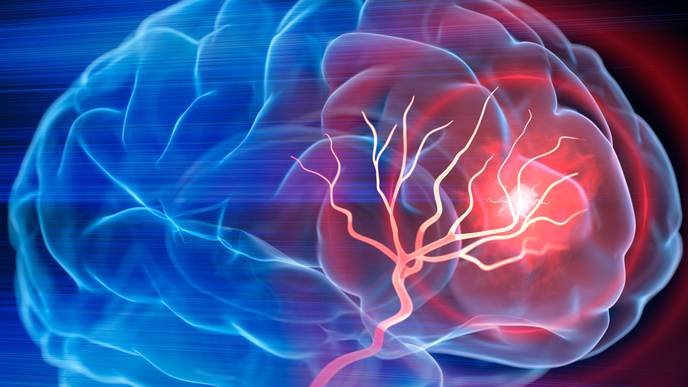Study Finds Distinct Patterns of Pre-Existing Brain Health Characteristics in Stroke Patients

05/26/2023
University of Cincinnati researchers are presenting abstracts at the European Stroke Organization Conference (ESOC) 2023, May 24-26 in Munich, Germany, including the results of the first large-scale assessment of radiological brain health in stroke patients in a population.
Extensive research has helped pinpoint risk factors for initial stroke, but there is limited understanding about what the brains of stroke patients look like on a population level, according to UC's Achala Vagal, MD, professor of neuroradiology.
"Imaging can be an objective manifestation of the presence and severity of clinical factors such as diabetes, hypertension, high cholesterol and kidney failure," she said. "However, the majority of the large epidemiological studies of brain health have been performed in stroke-free subjects."
Vagal was a co-principal investigator on the Assessing Population-based Radiological brain health in Stroke Epidemiology (APRISE) study that gained new information from neuroimaging results of stroke patients.
The research team analyzed all available clinical imaging data from nearly 3,500 patients who had a stroke in the Greater Cincinnati/Northern Kentucky region in 2015, assessing the imaging for signs of small vessel disease in the brain in the form of previous injury, microbleeds, white matter disease (wearing away of tissue) or brain atrophy, among other observations.
Vagal said the team identified three distinct clusters of observable imaging characteristics that were each associated with a specific set of clinical variables.
"This can help us understand the biology of preexisting brain health in stroke patients and help guide future interventions," she said. "We expected all the imaging parameters of brain health due to small vessel disease to be closely clustered, but we found a lack of clustering of microbleeds with white matter disease."
With the knowledge gained from the study, Vagal said the team is now using the brain health imaging data to build a prediction model of recurrent stroke.
"Such large-scale characterization of preexisting brain health is helpful to identify novel observable characteristics which can guide further studies," she said.
Vagal presented the oral abstract "Radiological Phenotypes of Brain Health in a Stroke Population: Primary Results of the Assessing Population-Based Radiological Brain Health in Stroke Epidemiology (APRISE) Study'' during the Imaging scientific communication session Thursday, May 25.
Citation: Study finds distinct patterns of pre-existing brain health characteristics in stroke patients (2023, May 26) retrieved 26 May 2023 from https://medicalxpress.com/news/2023-05-distinct-patterns-pre-existing-brain-health.html
This document is subject to copyright. Apart from any fair dealing for the purpose of private study or research, no part may be reproduced without the written permission. The content is provided for information purposes only.

Facebook Comments